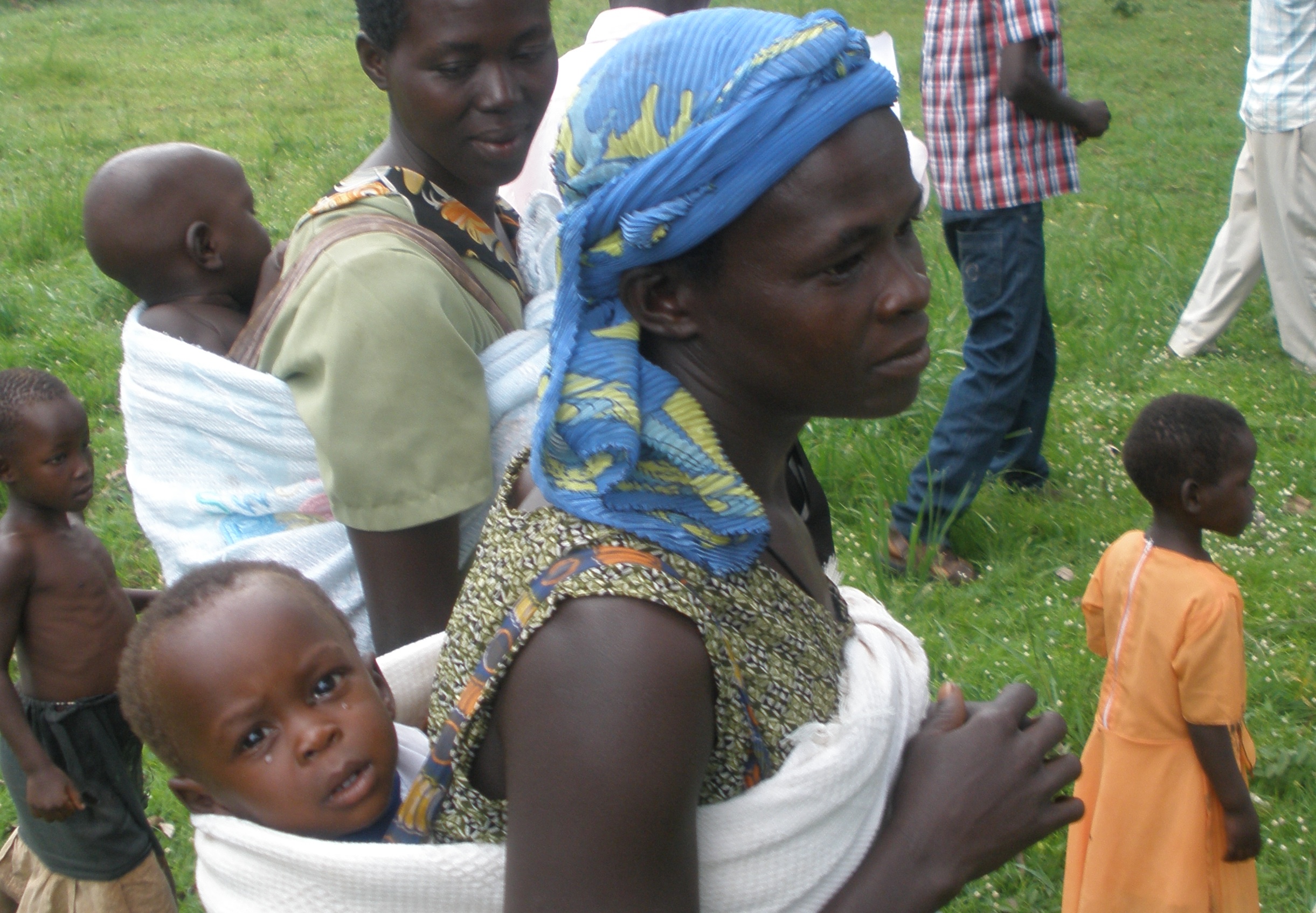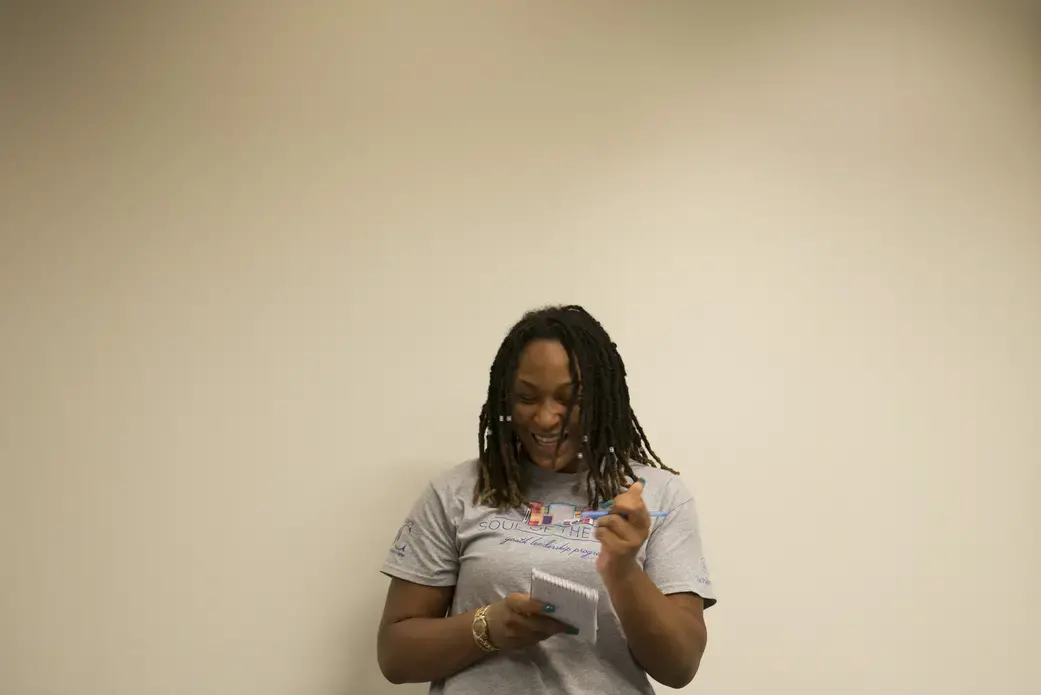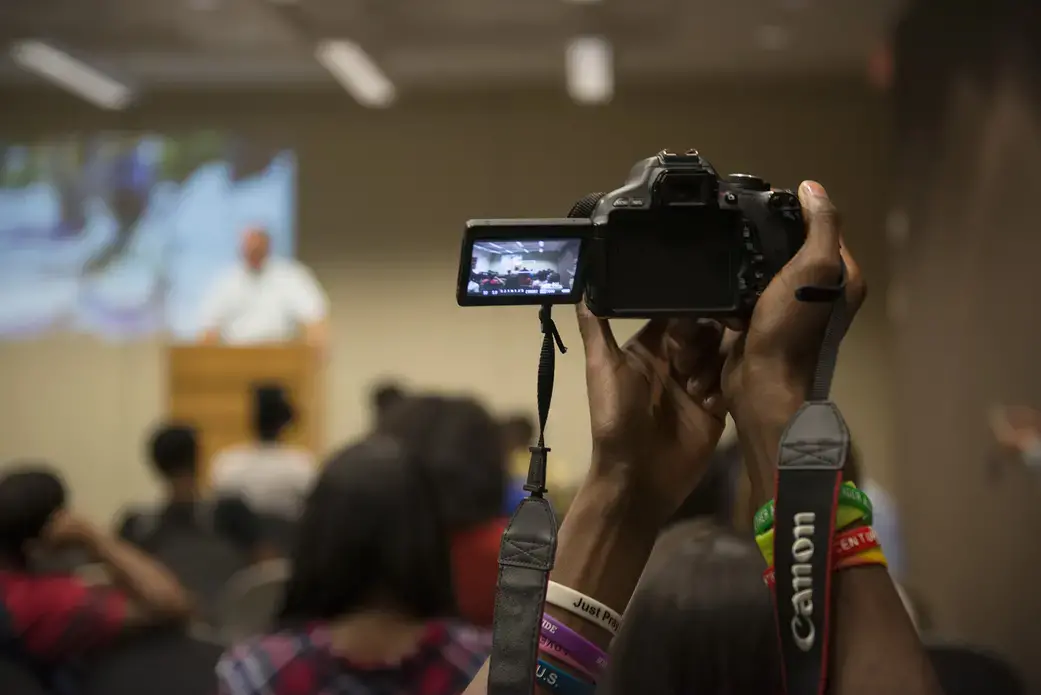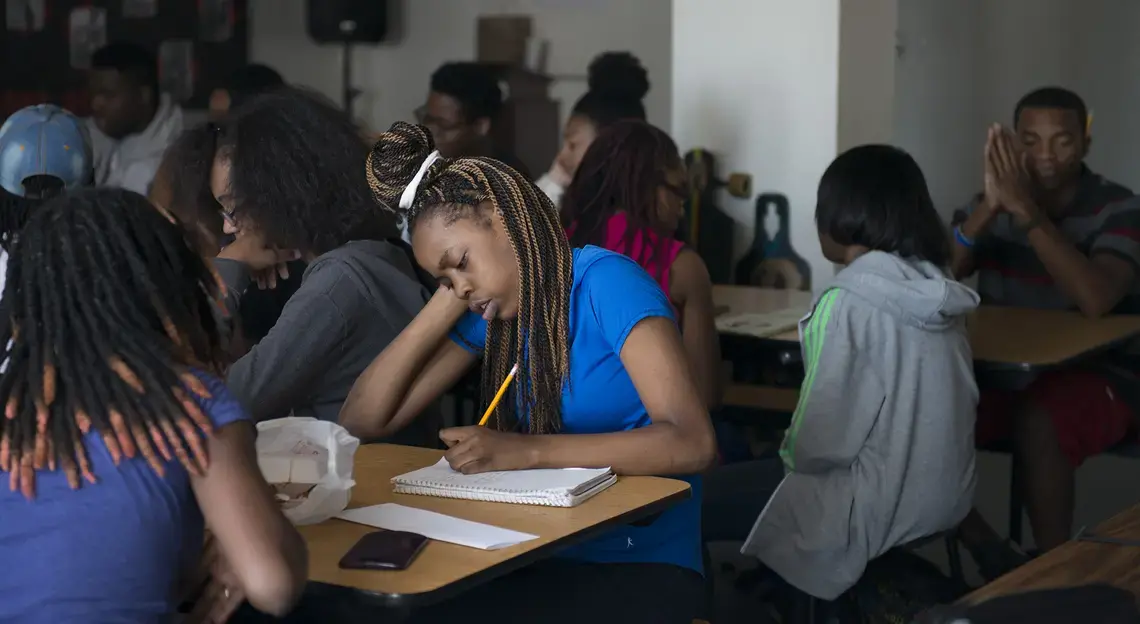The Pulitzer Center collaborated with Soul of the City, a six-week youth program, as part of the Pulitzer Prize Centennial Campfire Initiative to bring journalism skills to Washington, DC, high school and college students. The students met with Pulitzer Center grantees Roger Thurow and Allison Shelley and explored their reporting during a two-day workshop, July 26-27, 2016, that also included participant reporting activities facilitated by the Pulitzer Center education team.
Jay Stewart, director of programs at the nonprofit, Humanities DC, which oversees Soul of the City, appreciated the chance for the students to learn from journalists.
"I've read the [Washington] Post for years, but now I understand what goes on behind the scenes," Stewart said.
Each year, in partnership with the Summer Youth Employment Program, Soul of the City takes a group of 20 to 30 students out of the classroom and into communities in Washington, DC. Students meet with professionals, photograph the city, interview residents, and create a video about their experience.
This year, Soul of the City received an award of $40,000 as part of the Pulitzer Prize Centennial Campfires Initiative to develop programs to celebrate the 100th anniversary of the Prizes. With the award, Soul of the City designed programming to introduce students to the skills and values necessary to start a career in journalism. They worked with the Pulitzer Center to teach the students about global journalism.
On day one, the students came to the Pulitzer Center to learn about the role the Center plays in supporting global journalism. They met with Education Director Mark Schulte, toured the Pulitzer Center office and brainstormed how the Center's staff collaborates to support international reporting. Senior Education Manager Fareed Mostoufi asked students to reflect on their interest in global news, how often they talk about global issues at home and at school, and how interested they may be in becoming international reporters. They then devised questions about international reporting that they hoped to have answered by the end of the workshop:
"What difficulties have you dealt with when going out to report?" one student wondered
"How do you educate people about global issues?" others added.
When author and Pulitzer Center grantee Roger Thurow took the stage to address the students, he started by describing how a trip to Ethiopia while working as a staff reporter for The Wall Street Journal led to three books dedicated to investigating hunger in Africa. "Looking into the eyes of someone who is dying from hunger is like a disease of the soul," he said, a theme that students continued to reference throughout the workshop.
He went on to describe the inspiration behind his most recent reporting on the development of children in their first 1,000 days. His book, "The First 1,000 Days: A Crucial Time for Mothers and Children—and the World," documents communities in the United States and around the world where this cycle of malnutrition occurs due to a lack of education and resources, and what efforts are being made to stop the trend.
"You hope that what you're communicating and reporting on will have some kind of impact," Thurow said.
Throughout his talk, the students were tasked with keeping notes to later create a lead for a story about Thurow's presentation.
Their leads included: "hunger is still happening in the 21st century," "the first 1,000 days and how they are vital to making sure a child gets a great start," and "14 million people in the world are starving."
On day two, the team brought photojournalist and Pulitzer Center grantee Allison Shelley to Richard Wright Public Charter School to teach photojournalism skills and describe her reporting on Haiti after the 2010 earthquake. Shelley asked the students, "What do photojournalists do?"
"They take pictures," one student called out.
"They tell stories with pictures!" a student added.
Then the students did a walkthrough of her photographs from several reporting projects in Haiti.
"How can we make what we do standout," Shelley posed to the students as she went through her images from Haiti after the earthquake. Each photograph illustrated the techniques used to create great photographs–ones that tell a story.
Following Shelley's presentation, students created pitches for stories they would be interested in reporting if they were given travel grants to Haiti. In addition to outlining a one-sentence story idea, students were tasked with outlining the subjects they would need to interview, the questions they would ask their subjects and the photographs they would hope to get to tell the story. "Access of electricity throughout Haiti," "lifestyles of people in Haiti," and "food insecurity in Haiti" were just a few of the stories the students proposed.
One student summed up what several learned about the life of an international reporter when she said, "Global reporting can change your perspective in life."
"I learned how different parts of the world impact us all," another student added.
"I learned about the different aspects of being an international reporter and all the different factors that go into making a story happen," a student wrote in a post-workshop evaluation. He continued, "I most enjoyed Mr. Thurow's account of his experiences - I think hearing firsthand accounts is valuable to aspiring journalists because it gives them a good idea of what the field is like."
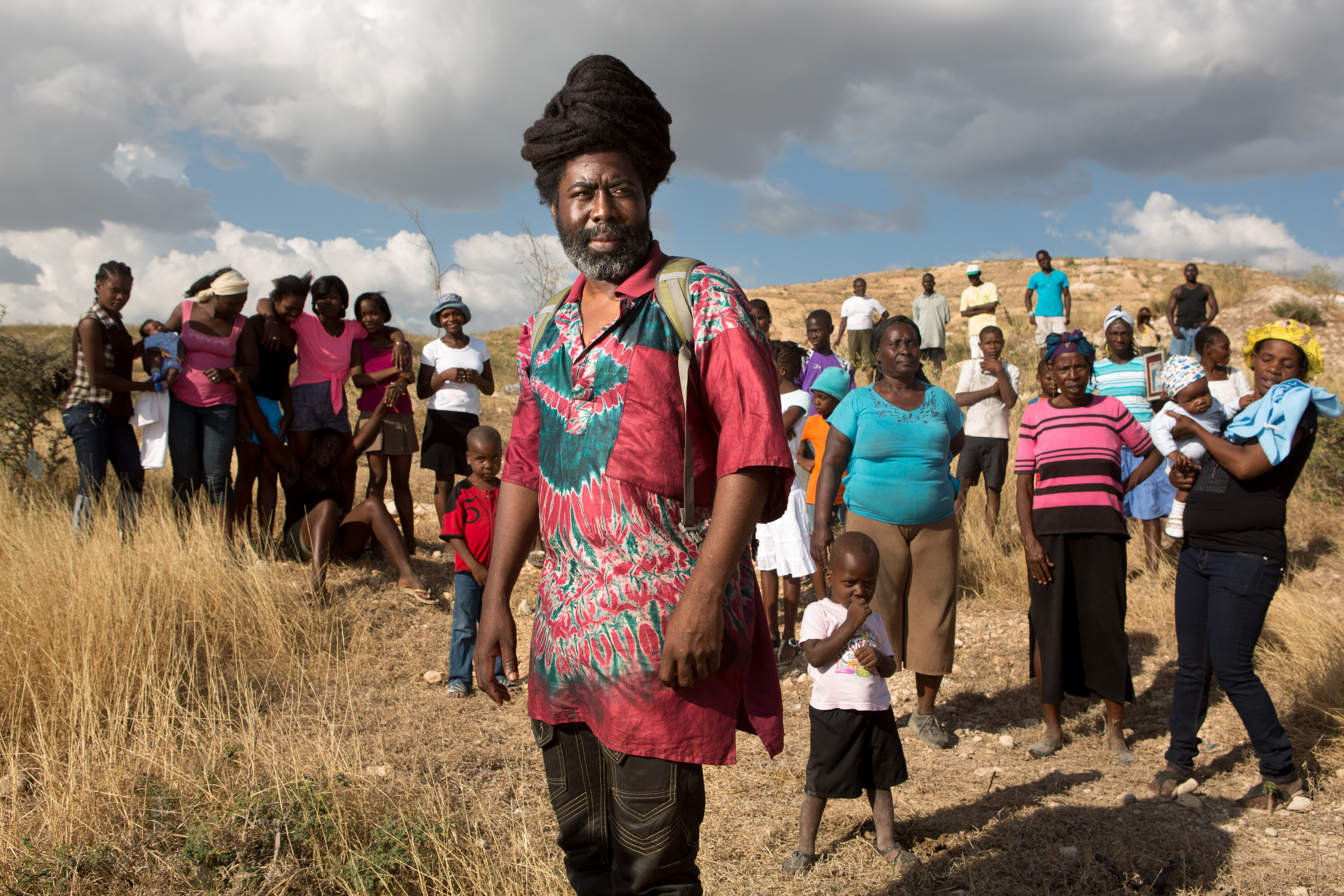
Project
Canaan: Haiti's Promised Land
How the residents of Canaan navigate land rights, urban planning, and governance—on their own.





